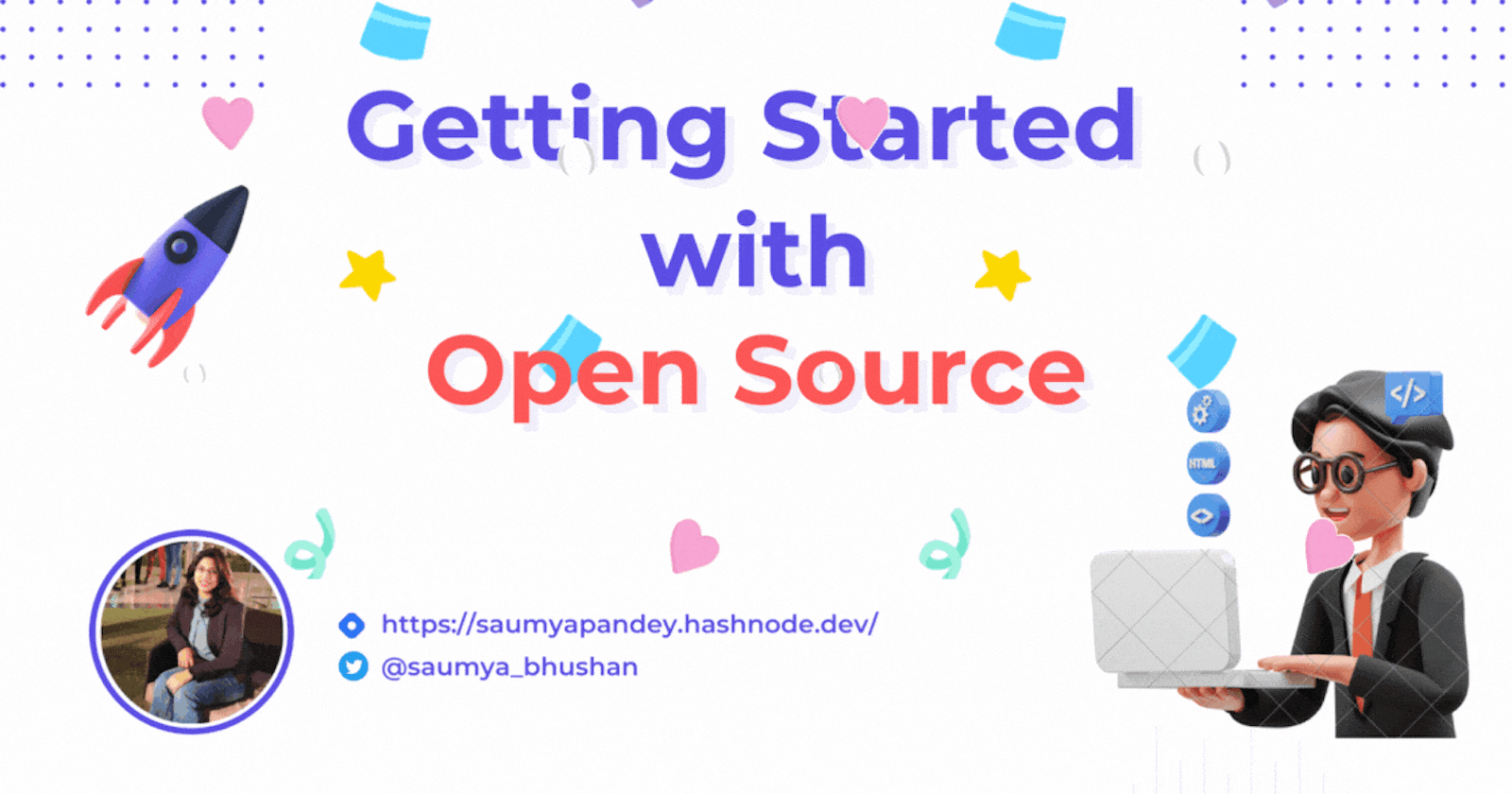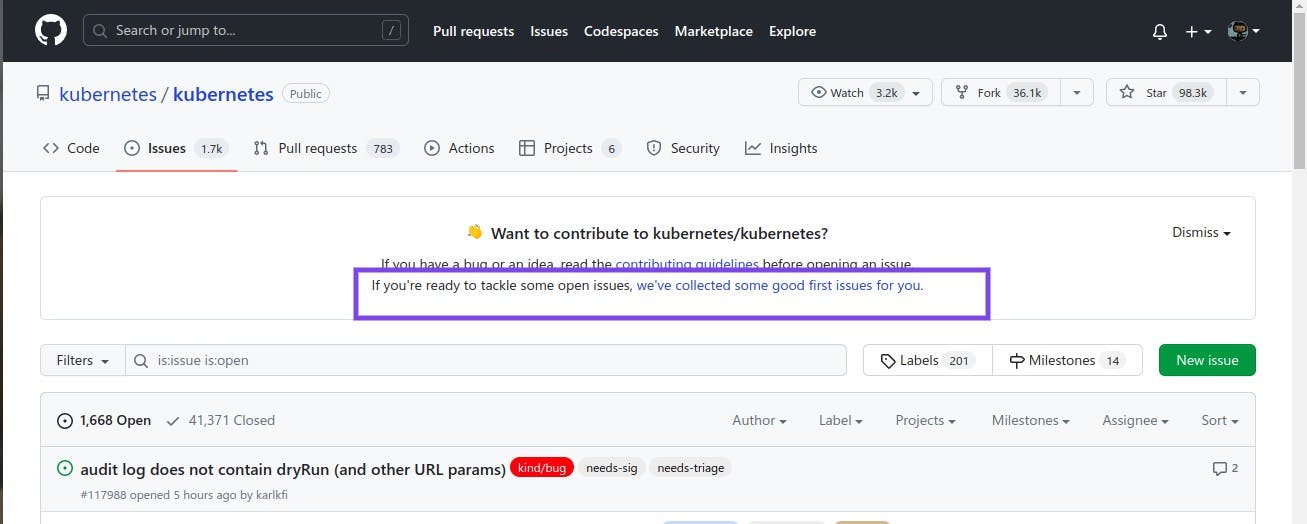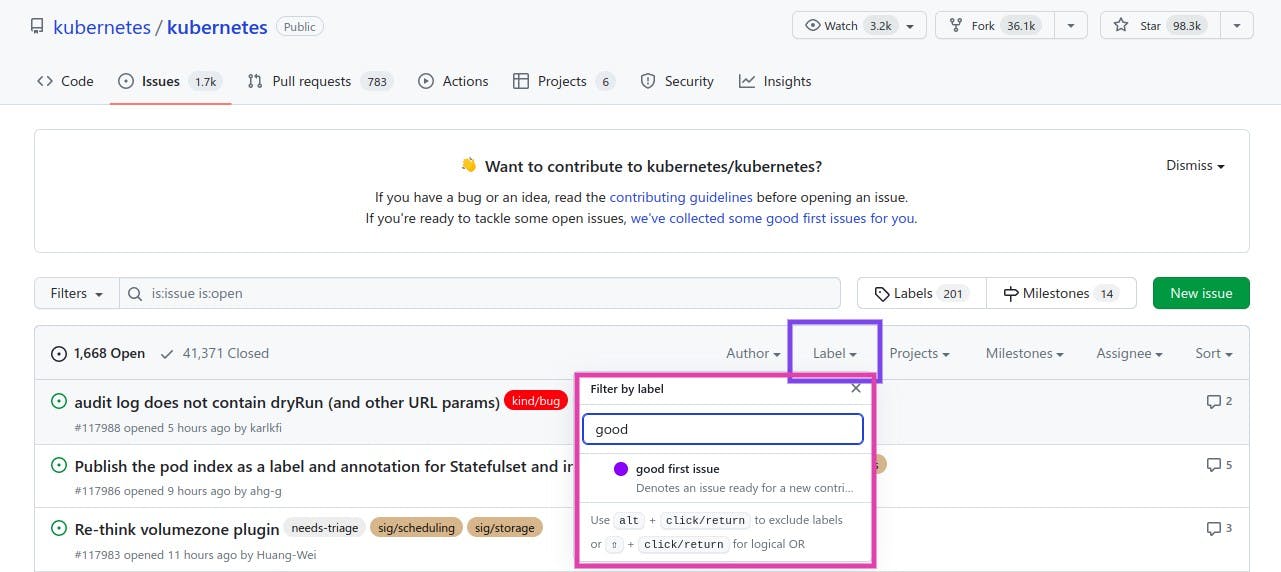
Contribute to Open Source with easy issues
How to find beginner friendly issues and start contributing ?
In this blog, I will talk about how to find very easy and beginner-friendly issues in open-source projects and make your first contribution 🎉
Introduction to Open Source
Open source pertains to something that is accessible to the public, enabling people to modify and share it due to its publicly available design. Engaging in open-source projects offers an opportunity not only to contribute to the advancement of free technology but also to explore various languages and frameworks within a supportive and inclusive community. 😎
Best ways to find issues
If you are new to open source and don't know and where to find easy and good issues then buckle up I will provide some easy way to get started.
First Contributions :
If you haven't done any contributions yet and want to know the steps and feel of doing the first contribution then here is a repo for you. https://github.com/firstcontributions/first-contributions .
Note : This project is only to simplify and guide the way beginners make their first contribution.
Search issues in a particular opensource project or repo :
Almost every opensource project provides different
labelson their issues. Using these labels you can find somegood issuesto get started. Even most of the time there is a link to filter only good first issues so that thenew contributors get involved quickly.
You can even filter the issues using the
label tab.Apart from labels, there are many more options to filter issues.
Search issues on GitHub :
One of the most common ways of finding projects to contribute to is by searching through issues and related PRs. Here are some tricks you can use to easily find reliable answers:
is:issue is:open label:first-timers-only - This lists all open issues that welcome first-timer contributions.
is:issue is:open label:"good first issue" - This will list all open issues with the label
good first issue, it is a good place to get started.is:issue is:open label:beginner - This specific query will display a list of projects that have open issues and are labelled as suitable for
beginners.is:issue is:open label:easy - This query will list all open issues that are labeled
easy.is:issue is:open label:good-first-bug - This query lists projects with open issues labelled
good-first-bug, to attract contributors to work on them.is:issue is:open label:"good first issue" - This will list all open issues with the label
good first issue, meaning it is a good for place for beginners to get started.is:issue is:open label:starter - This lists all open issues from across GitHub that are labeled
starter.is:issue is:open label:up-for-grabs - This lists open issues that are ready to be worked on if you have the basic or necessary skills.
no:label type:issue is:open - This query helps to ists all open issues that are not labeled.
is:issue is:open no:assignee - This shows all open issues that have not yet been assigned to a person.

Good First Issues Finder Website
Good First Issue websitehttps://goodfirstissues.com/ is a very good place to findgood-first-issue.You can even filter the issue according to different programming languages, labels and repositories. There is another website similar to this https://goodfirstissue.dev/
Awesome for beginner websites:
This website provides an extensive
collection of projectssuitable forbeginners. It includes a wide range of open-source projects from various domains, offering opportunities for individuals to contribute and gain experience in the open-source community.
Best way to get involved in open source :
Follow or starthe projects that you want to contribute.Join the mailing listof the community or project.Join Slack or discord or any community platformsuggested for that projectAsk your queriesin the channelExplore the project
README.mdfiles or anycontribution guidesor theirdocumentationsThere is
no small or big contribution, each contribution is equally important
Never get overwhelmed by large codebases. You can take one small step at a time. Start with exploring docs and easy, good-first-issue labelled issues. Try to explore others' PR (Pull Request) as well, even if you don't understand at first, no issue at all. Keep exploring and learning !! 😊
Resources to explore for open source :
That's all for today. 🙏 . I hope this blog is helpful to you. If you want me to write a blog on a particular topic then you can share the topic with me on any socials. You can follow me on
Twitter: https://twitter.com/saumya_bhushan
Linkedin: https://www.linkedin.com/in/saumya-pandey-076572166/
GitHub: https://github.com/SaumyaBhushan
Hashnode: Saumya Pandey
